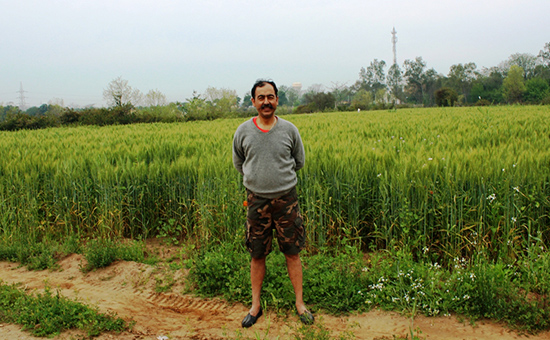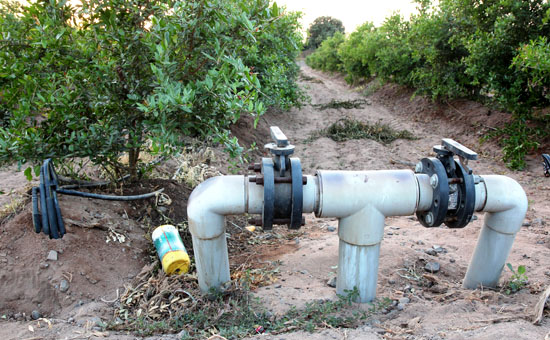-
Indians
love Status Quo. Any change invites protests. We love pointing fingers at
others but few look within n change for e.g. Punjab. States say agriculture is
a State subject but will accept funding from Centre.
India
is the land of status-quo. Whenever a change is proposed there are protests,
even if the failure of existing policies is acknowledged. Should we not be open
to change?
The
three agriculture Bills cleared by the Parliament evoked a similar response. These
bills are:
The Farmers’ Produce Trade and Commerce (Promotion and Facilitation) Bill will allow farmers to sell their produce within and outside the state and without payment of any market fees.
Some fear that private
companies might exploit farmers. But no corporate would want to be accused of
farmer exploitation.
The government tried to create
a national market for agricultural products by starting the eNAM portal in
2016, but it never took off.
The Farmers (Empowerment
and Protection) Agreement of Price Assurance and Farm Services Bill gives
farmers the right to enter into a contract with agribusiness firms, processors,
wholesalers, exporters, or large retailers for the sale of future farming
produce at a pre-agreed price. This will reduce market risk.
Here too people have
expressed unfounded fears of corporates exploiting farmers. In the 1980s,
Pepsico entered into contracts with potato producers of Punjab. Today it
partners with 24,000 farmers. Heard of protests!
Read Case
Study of Pepsico Contract Farming for Potatoes
Besides, corporates, which attain scale might start in-house research and pay top salaries, making it attractive for youngsters to become agricultural scientists
Also, farmers can form FPO
to benefit from economies of scale and can negotiate better terms with
corporates.
 Orchha is a worth visiting heritage town in M.P.
Orchha is a worth visiting heritage town in M.P.
Since the lockdown Yuvakmangal Agrotech Farmers Producer Company Ltd, an FPO, is supplying our society members with vegetables. The government must support FPO’s by providing working capital at 7% instead of the current 8-10%.
The government had framed
the model agricultural land lease law, 2016 and the draft model contract
farming law, 2018 to allow farmers to lease out land without fear of losing the
title. But, only, a couple of states introduced laws for contract farming.
The Essential Commodities (Amendment) Bill proposes to remove commodities like pulses, oilseeds, onion etc from the list of essential commodities and will do away with the imposition of stock holding limits on such items except under ‘extraordinary circumstances.
The ECA bill of 1955 has its origins in Defence of India Rules, 1943, when India was ravaged by famine and facing the effects of World War II. As per Ashok Gulati this law “discourages private sector investment in storage, as the ECA can put stock limits on any trader, processor or exporter at the drop of a hat.”
We now have surplus food
grains, so policies need to change.
Punjab has been at the forefront of protests. Their Advocate General argued that “agriculture is purely a state subject; hence, Parliament possesses no legal competence to enact such law.” This is a colonial legacy that was introduced in the Government of India Act, 1935.
What was the state of
agriculture then? There were no fertiliser and farm insurance subsidies, PM
Kisan, and buffer food stocks, all of which are funded by the Centre.
States have no qualms in
taking advantage of centrally sponsored schemes yet argue that agriculture is a
state subject. According to a Tribune report
on Punjab Budget 2020-21, officials admit dependence on grants from the Centre
for various centrally sponsored schemes.
Actually, the problem is
that Punjab has little money for agriculture because a bulk of its resources
(67%) are spent on providing free power to farmers.
In FY20-21, as per
Tribune, free power is expected to cost Rs 8,275 crore; Rs 2,000 crore will go
towards debt waiver and debt relief scheme, including Rs 520 crore for landless
farm labourers. The outlay for the Crop Residue Management Scheme is Rs 100 crore.
This leaves just Rs 2,000 crore for all other agriculture schemes. To fund free
power, the state has increased taxes elsewhere. Ashok Sethi, director, Punjab
Rice Millers Export Association said, they would not make any basmati purchase
from Punjab owing to high taxes. He wants withdrawal of 4.35% rural development
fee, market fee and cancel cess on basmati.
Actually, depleting groundwater levels is what Punjab politicians should be
worried about.
 In fields of Punjab.
In fields of Punjab.
The Akali government
provided free power to the agricultural sector starting 1997-98. The reality is
that Punjab has always been ruled by Jaat Sikhs, who are also the biggest
farmers - a legacy of the Punjab Land Alienation Act, 1900.
Free
power has hurt Punjab’s agriculture, depleted water resources by encouraging paddy cultivation, added to farmers’ production cost by forcing the installation of submersible pumps and curtailed industrial activity during the paddy season.
As a result, the area
under paddy grew by 30% between 1990-91 and 2000-01, and 51% between 1990-91
and 2016-17 (E).
As per a Tribune report,
paddy is a great guzzler of water. It takes more than three
times the water to grow paddy in Punjab compared to the flooded plains of Bihar
or West Bengal.
Free power and assured
procurement of paddy by the FCI at a pre-determined MSP has led to a shift to
rice growing in Punjab.
Procurement is also skewed
in favour of Punjab, Haryana and Andhra Pradesh, which accounted for 54% of the
total rice procured by FCI in 2017-18,
with Punjab accounting for 32.7% of the 36.18 million metric tonnes procured.
The top two producing states, West Bengal and Uttar Pradesh accounted for less
than 10% of the total procurement.
Amongst rice-producing
states, Punjab is placed third. Today, long-grain rice from Punjab and Haryana is
flooding the market in eastern India where the demand for traditional parboiled
rice is shrinking.
But, was Punjab always a rice producer?
Area
under Paddy in Punjab
|
Year
|
Area‘000 hectare
|
|
1. 1960-61
|
227
|
|
2. 1970-71
|
390
|
|
3. 1980-81
|
1183
|
|
4. 1990-91
|
2015
|
|
5. 2000-01
|
2611 Free Power
|
|
6. 2010-11
|
2831
|
|
7. 2016-17 (E)
|
3046
|
Source
Should rice not be grown in eastern
parts of India where water is abundant?
 Drip-irrigation Kutch.
Drip-irrigation Kutch.
So, what can the government do?
The government must cap the quantum of
rice it will buy at MSP and properly implement water-recharging
projects. Resources made available from removing free power can be used to incentivise
farmers to shift to horticulture.
India needs a second green revolution
that requires a rediscovery of indigenous rice.
Fortunately, this is happening in Tamil
Nadu, Karnataka, Kerala and West Bengal. Since Punjab was not a rice-growing
area, indigenous varieties are unknown. Here rice is grown for assured returns.
Read about indigenous
rice varieties
Captain Singh did not implement the SC
order on Sutlej-Yamuna canal arguing it would revive the demands for Khalistan.
He might repeat the argument, and not reform.
Author does not claim to be an expert on agriculture, is a CA. Views are personal. All pictures by author.
First Published Financial
Express and here